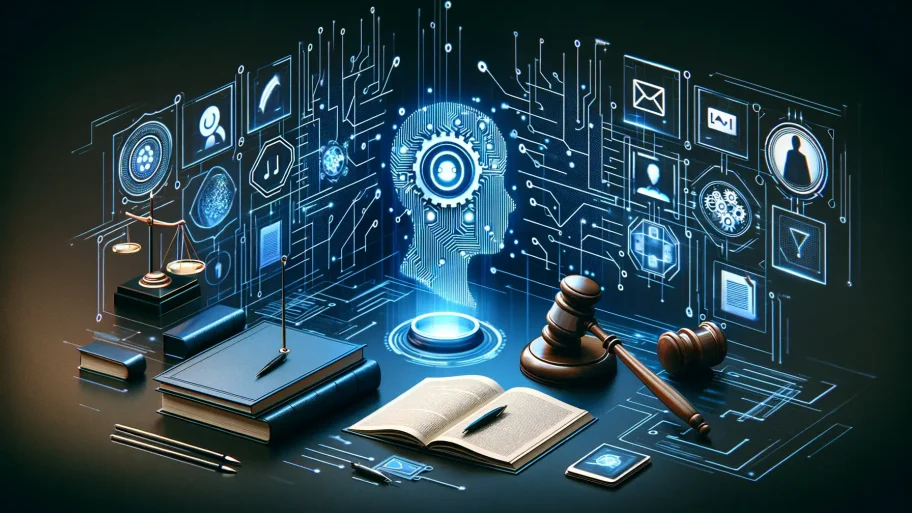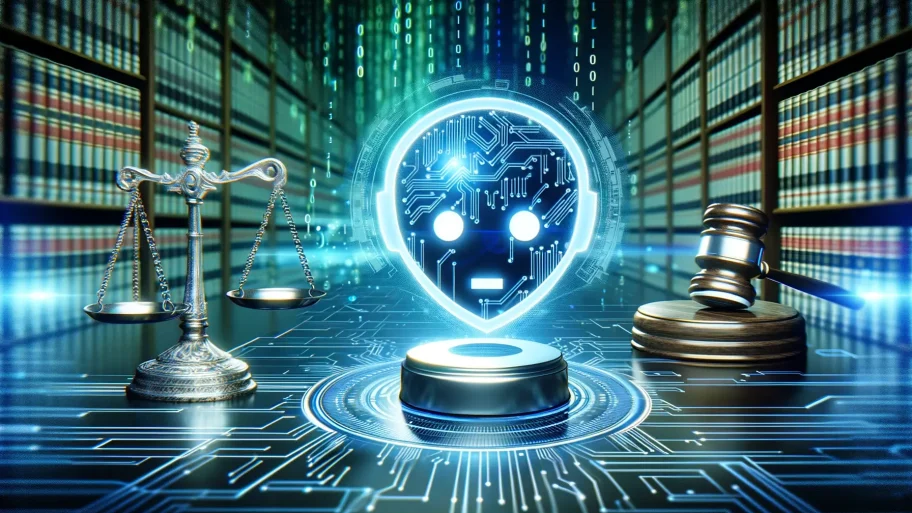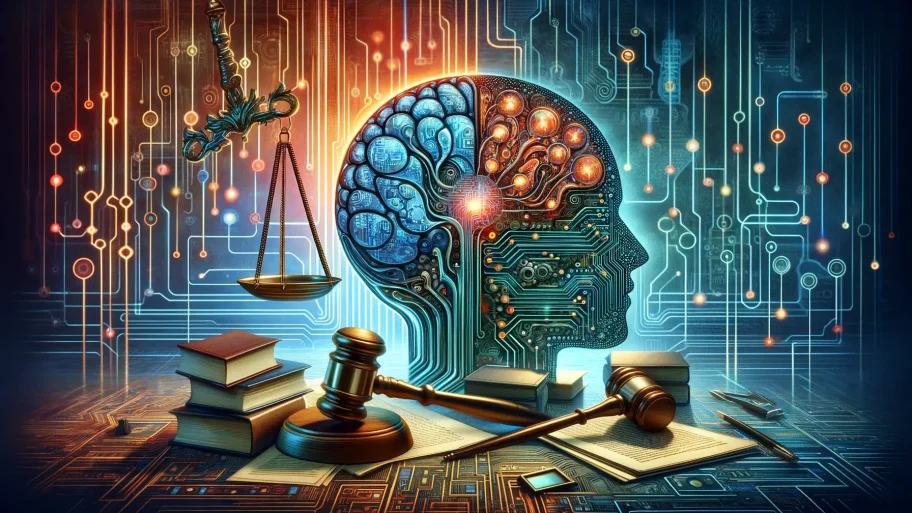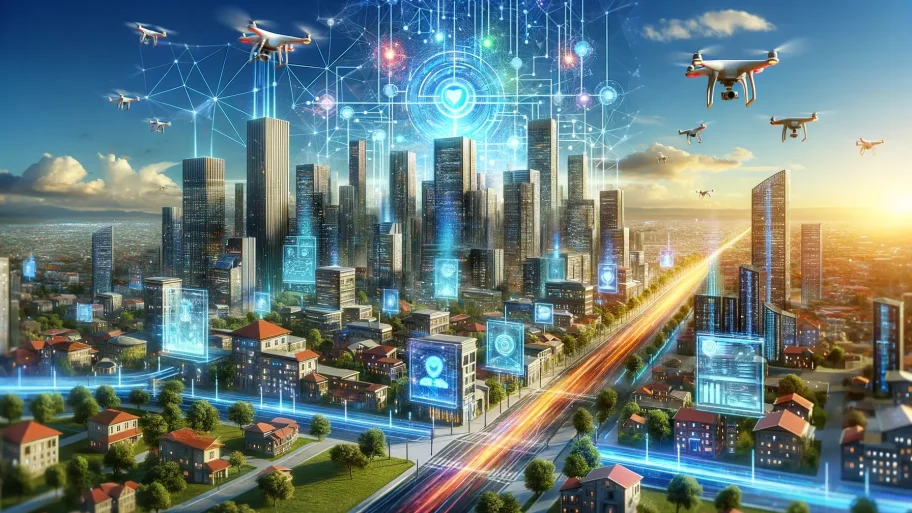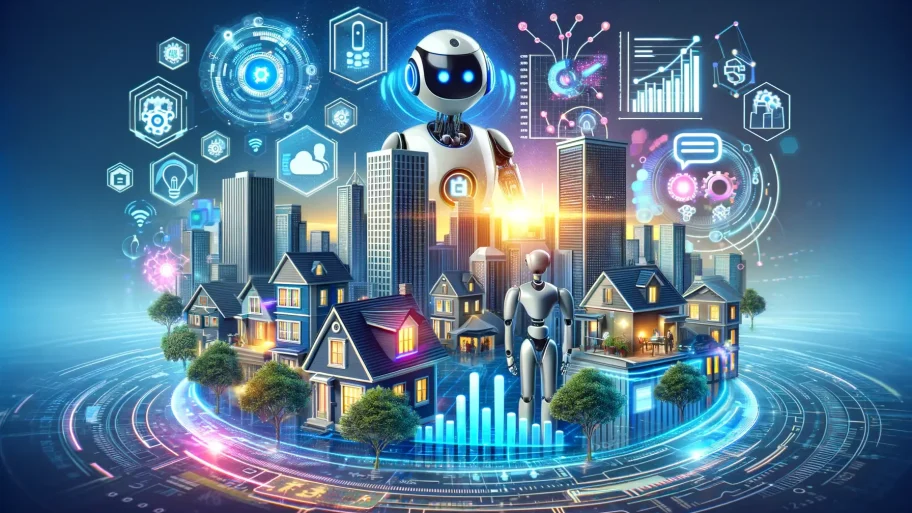Top 5 AI Use Cases In Hospitality Personalized Marketing
- By Matt
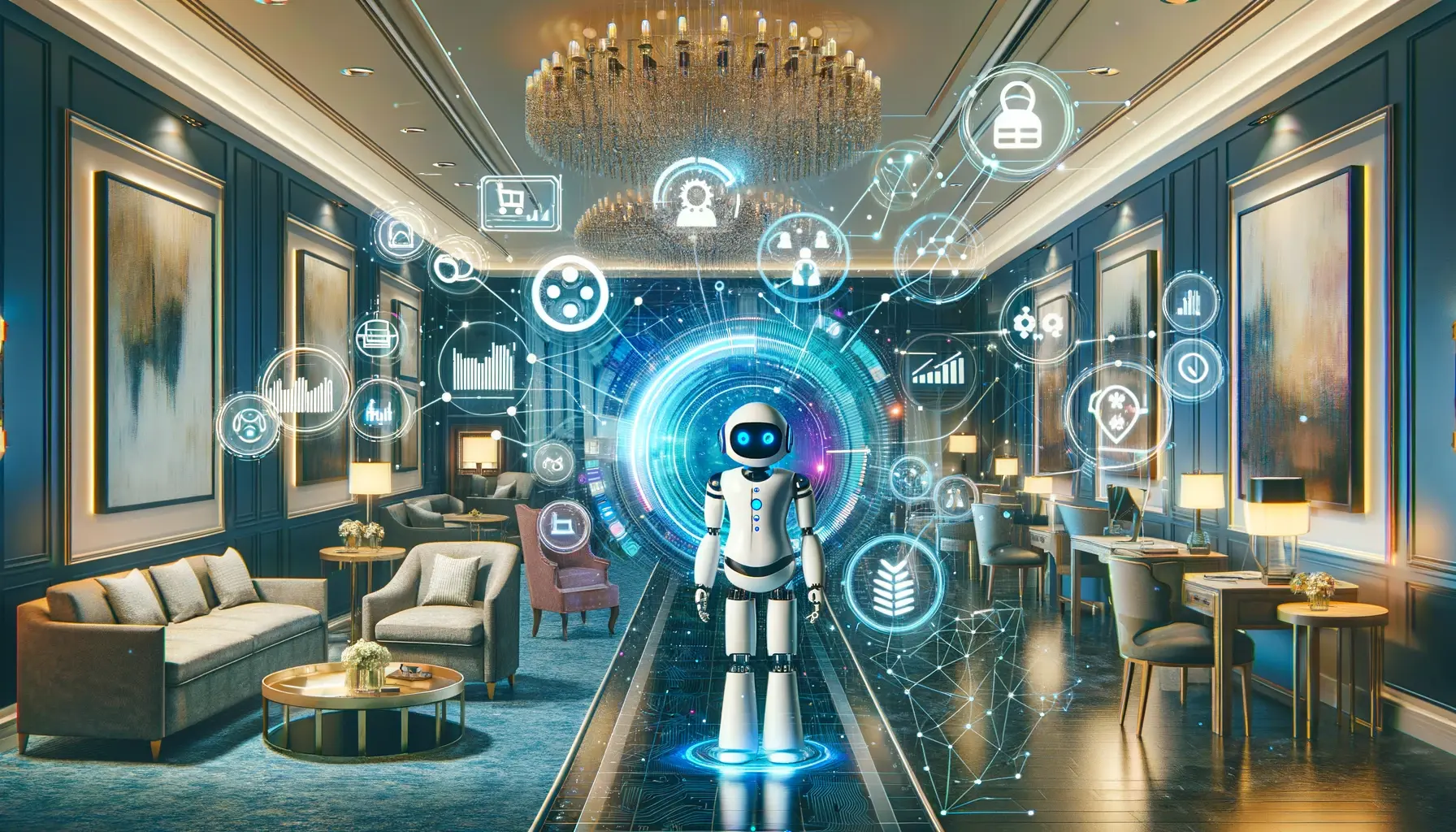
Attention Hospitality Industry Professionals and Tech Enthusiasts!
Imagine struggling with guest dissatisfaction, fluctuating prices, and overwhelmed customer service. These are not distant threats but imminent realities for those who fail to integrate AI into their personalized marketing strategies now.
In this article, we’ll reveal how AI can transform personalized marketing in hospitality, helping you avoid these costly challenges.
Key Takeaways
- AI-powered predictive analytics enhances guest satisfaction by anticipating their needs.
- AI-driven dynamic pricing optimizes room rates based on market trends.
- AI-enhanced chatbots provide real-time, personalized customer service.
- AI-based sentiment analysis refines marketing strategies based on guest feedback.
- AI-powered recommendation systems tailor suggestions to individual guest preferences.
Use Case #5: AI-Driven Dynamic Pricing Strategies
Starting our countdown at number 5 is the implementation of AI in dynamic pricing strategies, a critical approach to optimizing room rates based on real-time market conditions.
The Stress of Static Pricing Models
Static pricing models fail to capture the fluctuating nature of demand in the hospitality industry. This can lead to missed revenue opportunities and inefficient pricing strategies.
This rigidity adds stress to revenue management, making it difficult to maximize profitability.
Impacts of Ineffective Pricing Strategies
- Lost revenue opportunities
- Increased operational costs
- Inconsistent occupancy rates
- Reduced competitive edge
How AI Enhances Dynamic Pricing
AI-driven dynamic pricing analyzes vast amounts of data, including demand patterns, historical data, and market trends, to optimize room rates in real-time. This automated approach maximizes revenue and ensures competitive pricing.
Implementing AI for dynamic pricing enhances revenue management, optimizes occupancy rates, and improves overall profitability.
Table 1: Key Benefits of AI-Driven Dynamic Pricing
| Benefit | Description |
|---|---|
| Optimized Revenue | Real-time rate adjustments maximize revenue |
| Competitive Pricing | Dynamic rates ensure market competitiveness |
| Better Occupancy | Optimized pricing improves occupancy rates |
| Cost Efficiency | Automated pricing reduces manual efforts |
Table 1 highlights the significant benefits of implementing AI-driven dynamic pricing within hospitality operations.
The Evolution of Pricing Strategies
AI-driven dynamic pricing transforms revenue management by leveraging advanced algorithms to optimize rates in real-time. This approach minimizes human error and maximizes profitability.
As AI technology continues to evolve, dynamic pricing models will become even more sophisticated, further enhancing revenue management and competitive positioning.
Use Case #4: AI-Powered Chatbots
Utilizing AI-powered chatbots revolutionizes customer service by providing personalized, real-time interactions, enhancing guest experiences and operational efficiency.
The Challenge of Real-Time Customer Service
Traditional customer service methods struggle to meet the demands of real-time interactions, leading to delayed responses and guest dissatisfaction. Managing these interactions manually adds stress to customer service operations.
This challenge is particularly acute during peak times, when the volume of inquiries can overwhelm staff.
Challenges in Customer Service
- Delayed response times
- Guest dissatisfaction
- High operational costs
- Overwhelmed staff
AI-Powered Chatbots
AI chatbots utilize natural language processing to handle inquiries, bookings, and recommendations in real-time. This automated approach ensures quick and accurate responses, enhancing guest satisfaction.
Implementing AI-powered chatbots improves customer service efficiency, reduces operational costs, and boosts overall guest experience.
Table 2: Key Benefits of AI-Powered Chatbots
| Benefit | Description |
|---|---|
| Real-Time Responses | Immediate answers to guest inquiries |
| Increased Satisfaction | Enhanced guest experience through timely interactions |
| Cost Savings | Reduced need for manual customer service |
| Operational Efficiency | Streamlined customer service operations |
Table 2 outlines the benefits of implementing AI-powered chatbots for customer service in hospitality.
Advancements in Customer Service
AI-powered chatbots address the limitations of traditional customer service methods by providing real-time, personalized interactions. This technology enhances guest satisfaction and operational efficiency.
As AI continues to advance, chatbots will become even more capable, further improving the efficiency and effectiveness of customer service operations.
Use Case #3: AI-Driven Sentiment Analysis
Employing AI for sentiment analysis transforms how hotels understand and respond to guest feedback, enabling data-driven improvements in services and marketing strategies.
The Complexity of Guest Feedback
Managing and interpreting guest feedback manually is a complex and time-consuming process. Inconsistent feedback handling can lead to missed opportunities for service improvements and guest dissatisfaction.
This complexity adds stress to managing guest relations, impacting overall service quality and guest experience.
Challenges in Feedback Management
- Inconsistent feedback interpretation
- Missed improvement opportunities
- Guest dissatisfaction
- Reduced service quality
AI-Driven Sentiment Analysis
AI-driven sentiment analysis uses natural language processing to analyze guest reviews and feedback. This technology identifies trends and sentiments, enabling hotels to make data-driven improvements in services and marketing strategies.
Implementing AI for sentiment analysis enhances feedback management, improves service quality, and boosts guest satisfaction.
Table 3: Key Benefits of AI-Driven Sentiment Analysis
| Benefit | Description |
|---|---|
| Trend Identification | Recognizes patterns in guest feedback |
| Improved Services | Enables data-driven service enhancements |
| Increased Satisfaction | Better service quality boosts guest satisfaction |
| Enhanced Marketing | Data-driven marketing strategies based on feedback |
Table 3 highlights the benefits of AI-driven sentiment analysis in hospitality feedback management.
Transforming Feedback Management
AI-driven sentiment analysis revolutionizes feedback management by providing accurate insights into guest sentiments. This technology enables data-driven improvements, enhancing service quality and guest satisfaction.
As AI technology advances, sentiment analysis will become even more precise, further improving the effectiveness of feedback management and service enhancements.
Use Case #2: AI-Powered Recommendation Systems
Implementing AI-powered recommendation systems revolutionizes guest experiences by providing personalized suggestions for activities, dining, and local attractions.
The Challenge of Personalization
Personalizing guest experiences manually is a daunting task, often leading to generic recommendations that fail to meet individual preferences. This lack of personalization can result in guest dissatisfaction and reduced loyalty.
This challenge is particularly significant for hotels aiming to provide exceptional, individualized experiences.
Challenges in Personalization
- Generic recommendations
- Guest dissatisfaction
- Reduced guest loyalty
- Lower engagement rates
AI-Powered Recommendation Systems
AI-powered recommendation systems analyze guest
data and preferences to provide tailored suggestions for activities, dining options, and local attractions. This personalized approach enhances guest experiences and satisfaction.
Implementing AI for recommendation systems improves personalization, boosts guest loyalty, and increases engagement rates.
Table 4: Key Benefits of AI-Powered Recommendation Systems
| Benefit | Description |
|---|---|
| Personalized Experiences | Tailored suggestions based on guest preferences |
| Increased Satisfaction | Enhanced guest experiences boost satisfaction |
| Higher Engagement | Personalized suggestions increase engagement |
| Improved Loyalty | Better experiences enhance guest loyalty |
Table 4 outlines the benefits of AI-powered recommendation systems in hospitality.
Advancements in Personalized Recommendations
AI-powered recommendation systems transform guest experiences by providing personalized suggestions, enhancing satisfaction and loyalty. This technology ensures that guests receive tailored recommendations that align with their preferences.
As AI continues to evolve, recommendation systems will become even more precise, further improving the personalization of guest experiences.
Use Case #1: Personalized Guest Experience
Leveraging AI to personalize guest experiences revolutionizes the hospitality industry, enhancing satisfaction and fostering loyalty through tailored services and recommendations.
The Stress of Generic Services
Offering generic services can lead to guest dissatisfaction and a lack of loyalty. Without personalization, hotels struggle to meet the unique preferences and expectations of each guest.
This lack of personalization adds stress to guest management, impacting overall satisfaction and repeat business.
Impacts of Generic Services
- Guest dissatisfaction
- Reduced loyalty
- Lower repeat business
- Negative reviews
How AI Enhances Personalization
AI analyzes guest data and preferences to offer tailored services and recommendations. This approach ensures that each guest receives a personalized experience, enhancing satisfaction and loyalty.
Implementing AI for personalized guest experiences improves service quality, boosts repeat business, and fosters positive reviews.
Table 5: Key Benefits of Personalized Guest Experiences
| Benefit | Description |
|---|---|
| Enhanced Satisfaction | Tailored services improve guest satisfaction |
| Increased Loyalty | Personalized experiences boost loyalty |
| Positive Reviews | Happy guests are more likely to leave positive reviews |
| Repeat Business | Satisfied guests are more likely to return |
Table 5 highlights the significant benefits of implementing AI for personalized guest experiences in hospitality.
Transforming Guest Experiences
Personalized guest experiences driven by AI ensure that each guest receives tailored services, enhancing satisfaction and loyalty. This technology allows hotels to meet the unique preferences and expectations of their guests.
As AI continues to advance, the personalization of guest experiences will become even more precise, further improving satisfaction and fostering loyalty in the hospitality industry.
Conclusion
In the rapidly evolving hospitality industry, inefficiencies, guest dissatisfaction, and rising operational costs are significant threats to your business.
Neglecting to adopt these technologies means missing out on opportunities for increased efficiency, cost savings, and enhanced guest experiences.
Latest Posts
- By Matt | 9 months ago
- By Matt | 1 year ago
- By Matt | 1 year ago
- By Matt | 1 year ago
- By Matt | 1 year ago
- By Matt | 1 year ago
- By Matt | 1 year ago
There are no results matching your search Reset filters?
Trending
There are no results matching your search Reset filters?

